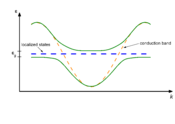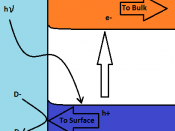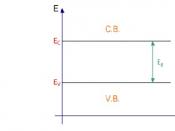The purpose of this experiment is to investigate how resistance varies with temperature for a metallic conductor, insulators, and semiconductor diodes. What exactly are these things? A semiconductor is a material having resistivity between that of a conductor and an insulator. It usually has a negative temperature coefficient of resistance. The diode is any electronic device with only two electrodes. They are now semiconductor devices. A conductor is a substance, or a body, that offers a relatively small resistance to the passage of an electronic current, and the insulator is a substance that provides a very high resistance to the passage of an electronic current; an appliance made of insulating material used to prevent the loss of an electric charge or current from a conductor.
In this experiment the investigator will be using this equipment and these materials: an ohmmeter, a thermometer, a heating device that will be a soldering gun, connecting leads, insulators, piece of rubber, piece of plastic, piece of wood, piece of paper, conductors, copper wire, light bulb wire, semiconductor diodes, silicone diodes, and germanium diodes.
The investigator will use the ohmmeter to measure the resistance of these objects. The soldering gun will be used to heat up the objects and then the investigator will use the thermometer to measure the temperature. The first step to doing this project is you have to connect the ohmmeter using leads with the tested object. Then you take your first measurement at room temperature and then record the results on some type of chart. Using the soldering gun, your heating device, heat up the tested object. Then you record the current temperature. Next, record the result at the current temperature. You should repeat this whole procedure with the other objects.
In this paragraph the experimenter will just be...


